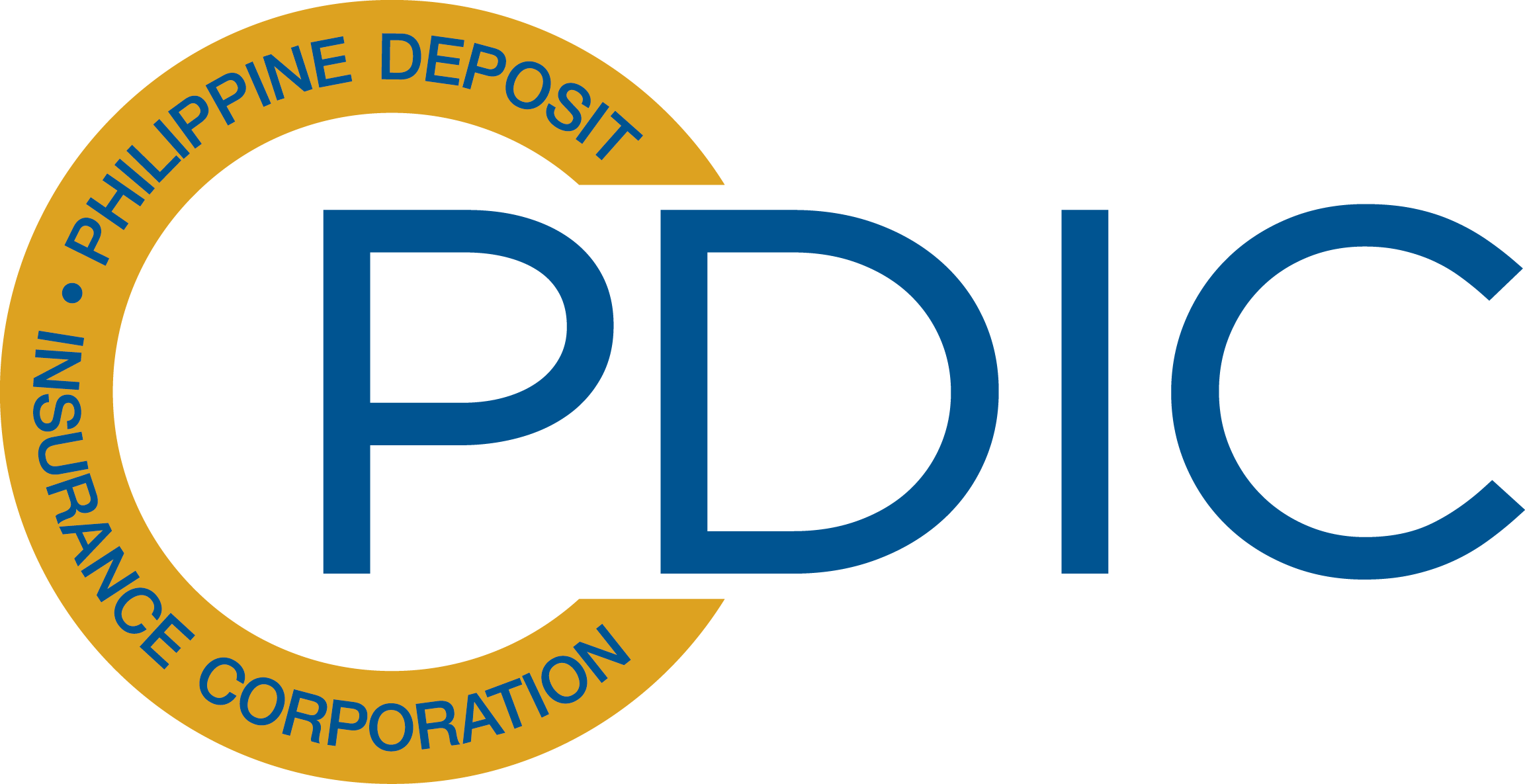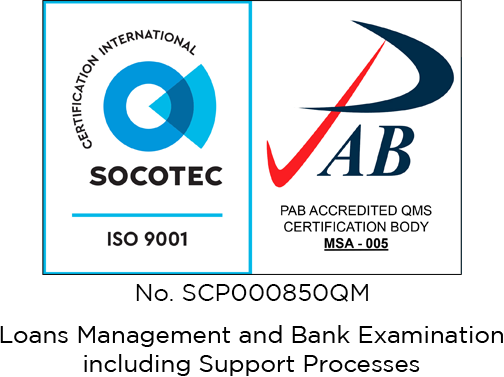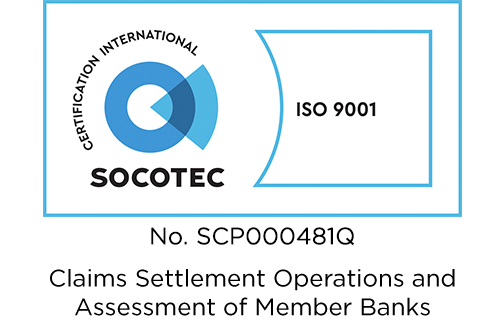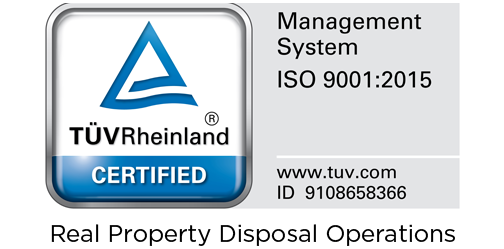| FINANCIAL LITERACY INITIATIVES |

PDIC-DEPARTMENT OF EDUCATION MODULE DEVELOPMENT PROJECT (Financial Literacy Project)
| Introduction |
| Objectives |
| Target Publics |
| Methodology |
| Milestones |
Basic economics teaches us that savings plays an important role in economic development. the simple act of saving in banks boosts capital formation. This finances investments, which in turn generate jobs, thereby contributing to nation-building.
As the government financial institution mandated to protect deposits, the PDIC is actively helping other financial regulators find ways to strengthen the Philippine banking system. Strong banks help spur economic development. Strong banks are less prone to closures and pose les risk to depositors.
The PDIC believes that one way to nurture a nation of informed savers is by advancing the financial literacy of the youth. With this in mind, PDIC formulated a program that will enhance the youth's financial literacy. This was done by collaborating with the Department of Education in order to integrate into the high school curriculum information on PDIC and on savings consciousness. This gave birth to the PDIC-Basic Secondary Education Module Development Project, an initiative rooted in the idea that the youth are effective change agents who will mold the Philippine economy's future.
The project is a milestone in PDIC's public awareness campaign as it produced and distributed Teacher's Guides to over 5,000 public high schools nationwide. This project will impact to an average of 5 million high school students year after year. Because of the nature of the project, it will be self-sustaining in the years to come, with a multiplier effect in terms of continuous addition in the number of students reached each year, as well as transfer of learning to their peers.
Discussions on the value of saving, the financial sector, and PDIC's mandate and functions will be integrated in Araling Panlipunan (Ekonomiks) IV and Edukasyon sa Pagpapahalaga (Values Education) II, III, IV.
Through their Araling Panlipunan classes, high school students will learn the significance of savings mobilization in the financial environment and the role of PDIC in looking after the soundness of the banking system. Values education classes, on the other hand, will urge teenagers to be aware of their rights and responsibilities as depositors. This will in turn prepare the youth to make informed and responsible decision in the long-term.
Based on initial feedback from audiences during PDIC's media blitz in various radio and television programs on the project, teachers, parents and students recognize the value of the project. It was learned from the orientation of DepEd regional directors and assistant directors conducted in October 4, 2006 that teachers were grateful for the much needed instructional material. They cited the yet unfulfilled need to teach financial literacy to students and even to themselves as teachers.
The program is guided by the following objectives:
Like most savings based campaigns, the long run objective of the program is to inculcate savings ethics in the youth and contribute to efforts geared towards increase in the country's saving rate, which boosts capital formation, which in turn finances investments, which translates to nation building.
The short run objectives which are immediately achievable are:
- To start a financial literacy education campaign targeting the youth;
- To design a campaign that is self-sustaining while at the same time, cost-efficient to the government;
- To plant the seeds of savings consciousness in the youth, so that in the long run, the country's savings rate and economic development will improve.
The strengthening of the banking system is a primary consideration of PDIC. Strong banks help in achieving economic development and result in less bank closures. Educating five million public high school students in over 5,000 public high schools nationwide year after year could have a considerable impact on the country's savings rate.
DepED regional directors and assistant directors expressed their gratitude for the project to PDIC during the Philippine Association of Secondary Education Chiefs and Assistant Chiefs (PASECAC) quarterly conference held in Cagayan de Oro on October 3-6, 2006. DepED invited PDIC to orient the high school chiefs on the PDIC-DepED Module Development Project in the said assembly.
DepED regional and division supervisors are expected to monitor the use of the material in the school. Division chiefs are enjoined to give feedback to the DepED BSE through the Regional Office as to the issues and concerns relative to the accuracy of the information on the material or the material's effectiveness. This way, the Teachers' Guides will remain relevant and useful to the teachers and students.
The PDIC sees the importance of tapping the youth especially high school students in helping instill the value of saving not only for their own benefit but also to help the economy. The Teachers' Guides will be distributed to 5,000 public high school students year after year.
The exposure of these young minds to the value of saving and financial literacy will enhance savings consciousness among the youth. It will likewise help increase knowledge on the students' rights and responsibilities as depositors. With proper information, they will be able to make informed and prudential decisions regarding finances. Within their sphere of influence, said knowledge can trickle down to other depositors.
- PDIC tied-up with the DepED to implement the project. The PDIC-BSE Module Development Project Memorandum of Understanding was signed on October 26, 2005.
- The program sought to integrate into the high school curriculum of the concept of savings and the functions of PDIC by way of teachers' guides. The teachers' guide is a form of expanded lesson plan incorporating the information (content) as well as the suggested learning strategies, activities, and evaluation for each lesson. PDIC and DepED identified entry points in the high school learning competencies where PDIC's advocacies can be effectively integrated.
- The first drafts of the Teachers' Guides were crafted in a writeshop conducted by PDIC on October 27-28, 2006.
After a series of meetings with the DepED Bureau of Secondary Education that started in August 2005, the PDIC and the DepED identified the entry points in the existing secondary curriculum where information on the PDIC, savings consciousness and financial literacy education can be integrated. The learning competencies for each of the subject areas identified were evaluated and the appropriate learning competencies selected. The program was named as the PDIC-DepED Basic Secondary Education Module Development Program.
The DepED identified the thematic/curriculum writers who will participate in the PDIC-DepED Basic Secondary Education Module Development Program.
On October 26, 2005, a memorandum of understanding to undertake the PDIC-DepED Basic Secondary Education Module Development Program was signed by then PDIC President and CEO Ricardo M. Tan and DepED Acting Secretary Dr. Fe Hidalgo.
On October 27-28, 2005, a two-day seminar workshop-writeshop was conducted at the University Hotel, UP Diliman. The Teachers' Guides (TGs) for Araling Panlipunan (Economics), Pagpapahalaga 2 to 4 (Values Education 2 to 4) were drafted.
Peer reviews of the Teachers' Guides for Araling Panlipunan 4 (Economics), Pagpapahalaga 2 to 4 (Values Education 2 to 4) were conducted from November 2005 - January 2006.
Internal critiquing of the Teachers' Guides by the DepED was conducted in February 2006 with corresponding revisions made until April 2006.
On April 24, 2006, expert validation of the Teachers' Guides was conducted at the DepED Complex in Pasig City.
On June 22, 2006, PDIC formally turned over to the DepED the facsimile copies of the Teachers' Guides in symbolic rites ceremonies to commemorate the Depositor Protection and Awareness Week and to usher the Savings Consciousness Week (June 28 - July 4).
On October 4, 2006, PDIC conducted orientation to DepED chiefs and assistant chiefs nationwide regarding the collaborative project as well as the use of the Teachers' Guides in Cagayan de Oro City.
On December 14, 2006, PDIC President Michael A. Osmeña formally turned over copies of the Teachers' Guides to DepED Secretary Jesli A. Lapus, for distribution to public high schools nationwide, simple ceremonies at the DepED Complex, Pasig City.
By December 2006, PDIC started distribution of the Teachers' Guides to the 5,500 public high schools nationwide.
On June 18, 2007, in celebration of the 5th Depositor Protection and Awareness Week and PDIC's anniversary week, PDIC signed a Memorandum of Understanding (MOU) with organizations under Coordinating Council for Private Educational Association (Cocopea) namely: Philippine Association of Colleges and Universities (PACU), Catholic Education Association of the Philippines (CEAP), Association of Christian Schools, Colleges and Universities (ACSCU) and Philippine Association of Private Schools, Colleges and Universities (PAPSCU). The MOU enjoins all members of private high schools to adopt the use of the Teachers' Guides co-produced by PDIC and DepED Module Development Project on financial literacy and savings consciousness.
In July 2007, coordination with the language institutions started for the translation of the Teacher’s Guides from Filipino to English for use of students in the private high schools.
In September 2007, the project was presented during the Philippine Association of Secondary School Administrators (PASSA) Congress held at the Iloilo Grand Hotel in Iloilo City.
In October 2007, the project was presented during the 6th International Association of Deposit Insurers (IADI) General Meeting and Conference in Kuala Lumpur, Malaysia. The conference carried the theme, “Deposit Insurance and Consumer Protection”.
In December 2007, the project was presented during the Citi-FT Financial Education Summit in New Delhi, India. The summit in India brought together over 200 representatives of financial institutions, government agencies, non-governmental organizations, multilateral bodies, educational groups and private business.
As a collaborative project, PDIC participated in the First Business Education Summit held at the Asian Institute of Management on December 6, 2007. The Summit was organized by the PCDEB and the Business Education Industry Linkages. Vice President Noli de Castro was guest of honor.
On April 15, 2008, drafts of the English version of Teacher’s Guides were reviewed and validated by curriculum and language experts in high school and Economics from DepED.
On June 23, 2008, translated Teacher’s Guides (English version) were turned-over to the Department of Education (DepED) through Secretary Jesli A. Lapus and the Coordinating Council for Private Education Association (COCOPEA) that will formalize the adoption/use of TGs in the private high schools nationwide.
Distribution of copies to COCOPEA member schools started in November 2008.
The unprecedented spate of bank closures since December 2008 necessitated a depositor education campaign to advocate safe and responsible banking. As a response, PDIC expanded its financial literacy advocacy to the “Be a Wise Saver campaign”. The Be a Wise Saver campaign espouses the 7 Habits of a Wise Saver.
On June 17, 2009, the Be a Wise Saver campaign was formally launched with the signing of the Memorandum of Understanding among the PDIC, the Bangko Sentral ng Pilipinas, and the entire banking industry as represented by the Bankers Association of the Philippines, Chamber of Thrift Banks, Rural Bankers Association of the Philippines and the Bank Marketing Association of the Philippines.
The first roadshow of the Be a Wise Saver campaign was conducted in Northern Luzon. It was held in Baguio City on December 7, 2009. Banking professors and students from the University of Baguio and the University of the Cordilleras attended said roadshow. The Visayas leg was held in Cebu City on January 27, 2010 and was attended by students and faculty from the University of San Jose and the University of San Carlos. The Mindanao leg was conducted in Cagayan de Oro City on September 29 to 30, 2010 and attended by students and faculty from Xavier University (Ateneo de Cagayan University) and employees of the local government units of Cagayan de Oro City.
.jpeg)
.png)





